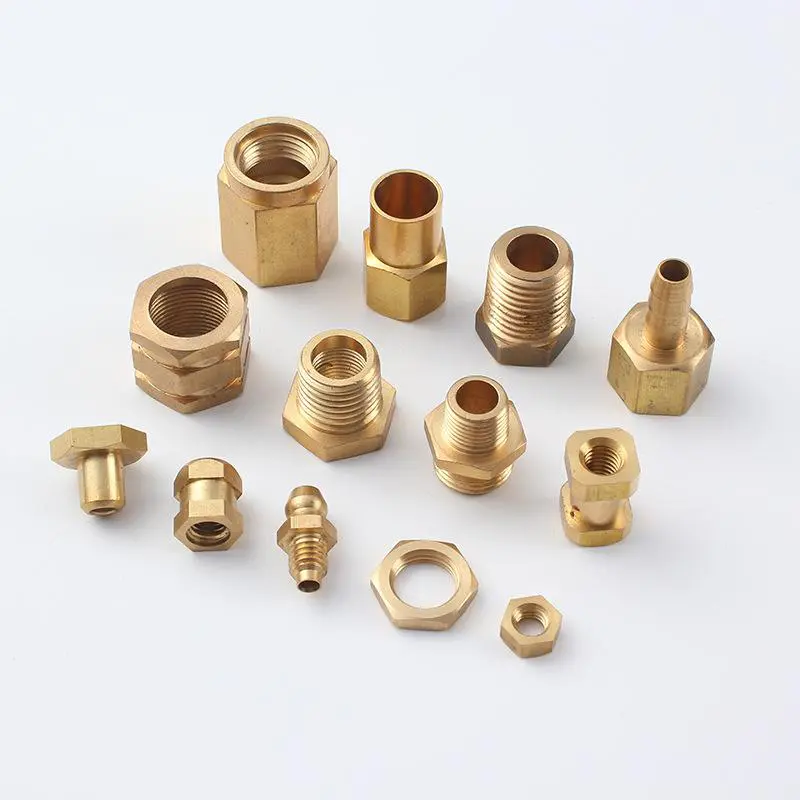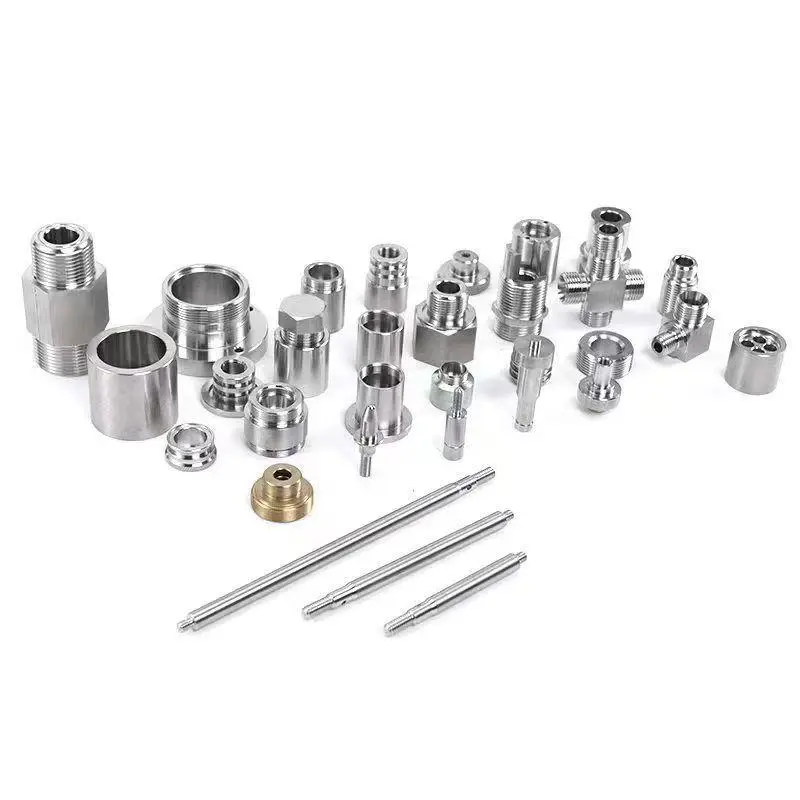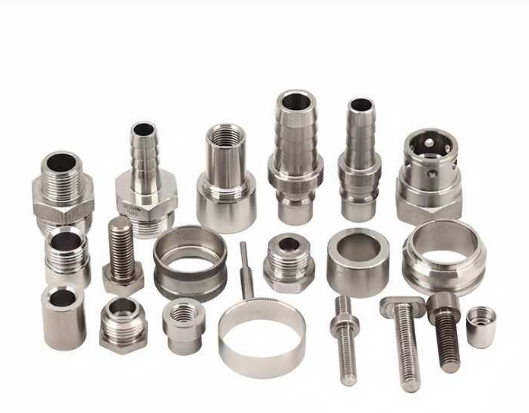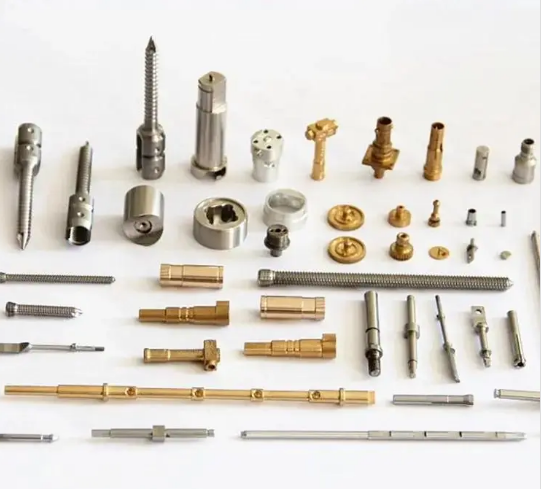Unlocking Precision: The Benefits of CNC Swiss Brass Machined Parts in Manufacturing
Published Time:
2025-09-21
CNC Swiss brass machined parts represent a critical component in the realm of precision manufacturing, particularly for industries requiring high accuracy and efficiency. The term "CNC" stands for Computer Numerical Control, a technology that enables the automated control of machine tools through computer programming. When combined with the Swiss machining process, which is known for its exceptional precision and ability to produce complex geometries, manufacturers can achieve outstanding results.
One of the most significant advantages of CNC Swiss brass machined parts is their ability to produce intricate designs with tight tolerances. The Swiss machining method allows for continuous workpiece movement while the cutting tool remains stationary, facilitating the creation of complex shapes that traditional machining methods might struggle with. This capability is particularly beneficial for industries that rely on detailed components for functionality, such as aerospace, automotive, and medical device manufacturing.
Brass, as a material, offers several properties that make it suitable for machining. Its excellent machinability, corrosion resistance, and electrical conductivity make it an ideal choice for components that require durability and reliability. Additionally, brass can be easily polished and finished, allowing for aesthetically pleasing end products that meet both functional and visual standards.
In terms of production efficiency, CNC Swiss machining significantly reduces cycle times. The setup of the machine allows for multiple operations to be performed simultaneously, minimizing the need for secondary operations. This streamlined process not only leads to faster production times but also lowers the likelihood of human error, enhancing overall quality and consistency across batches of parts.
Another factor to consider is the scalability of CNC Swiss brass machined parts. Manufacturers can efficiently produce small to large quantities of parts without compromising on quality. This versatility makes them an excellent choice for both prototyping and high-volume production runs, catering to various customer needs within the market.
Moreover, advancements in CNC technology have driven innovations in the machining process, including the integration of advanced software and automation systems. These developments have further improved precision and efficiency, allowing manufacturers to stay competitive in a rapidly evolving landscape.
In conclusion, CNC Swiss brass machined parts are invaluable in modern manufacturing, offering numerous benefits ranging from precision and efficiency to material advantages and scalability. For professionals in the manufacturing sector, leveraging these components can significantly enhance product quality and operational performance, positioning their businesses for success in a competitive marketplace.
One of the most significant advantages of CNC Swiss brass machined parts is their ability to produce intricate designs with tight tolerances. The Swiss machining method allows for continuous workpiece movement while the cutting tool remains stationary, facilitating the creation of complex shapes that traditional machining methods might struggle with. This capability is particularly beneficial for industries that rely on detailed components for functionality, such as aerospace, automotive, and medical device manufacturing.
Brass, as a material, offers several properties that make it suitable for machining. Its excellent machinability, corrosion resistance, and electrical conductivity make it an ideal choice for components that require durability and reliability. Additionally, brass can be easily polished and finished, allowing for aesthetically pleasing end products that meet both functional and visual standards.
In terms of production efficiency, CNC Swiss machining significantly reduces cycle times. The setup of the machine allows for multiple operations to be performed simultaneously, minimizing the need for secondary operations. This streamlined process not only leads to faster production times but also lowers the likelihood of human error, enhancing overall quality and consistency across batches of parts.
Another factor to consider is the scalability of CNC Swiss brass machined parts. Manufacturers can efficiently produce small to large quantities of parts without compromising on quality. This versatility makes them an excellent choice for both prototyping and high-volume production runs, catering to various customer needs within the market.
Moreover, advancements in CNC technology have driven innovations in the machining process, including the integration of advanced software and automation systems. These developments have further improved precision and efficiency, allowing manufacturers to stay competitive in a rapidly evolving landscape.
In conclusion, CNC Swiss brass machined parts are invaluable in modern manufacturing, offering numerous benefits ranging from precision and efficiency to material advantages and scalability. For professionals in the manufacturing sector, leveraging these components can significantly enhance product quality and operational performance, positioning their businesses for success in a competitive marketplace.
Previous Page
Previous Page
Beijing Pafinal Precision Machinery Co., Ltd.
Email:sales@pafinal.com

Address: No. 239 Huanhe South Road, Tianjin Pilot Free Trade Zone (Airport Economic Zone), Tianjin
中企跨境-全域组件
制作前进入CSS配置样式
sales@pafinal.com:
Whatsapp:
在线客服添加返回顶部
图片alt标题设置: PAFINAL
表单验证提示文本: Content cannot be empty!
循环体没有内容时: Sorry,no matching items were found.
CSS / JS 文件放置地




 2025-09-21
2025-09-21


